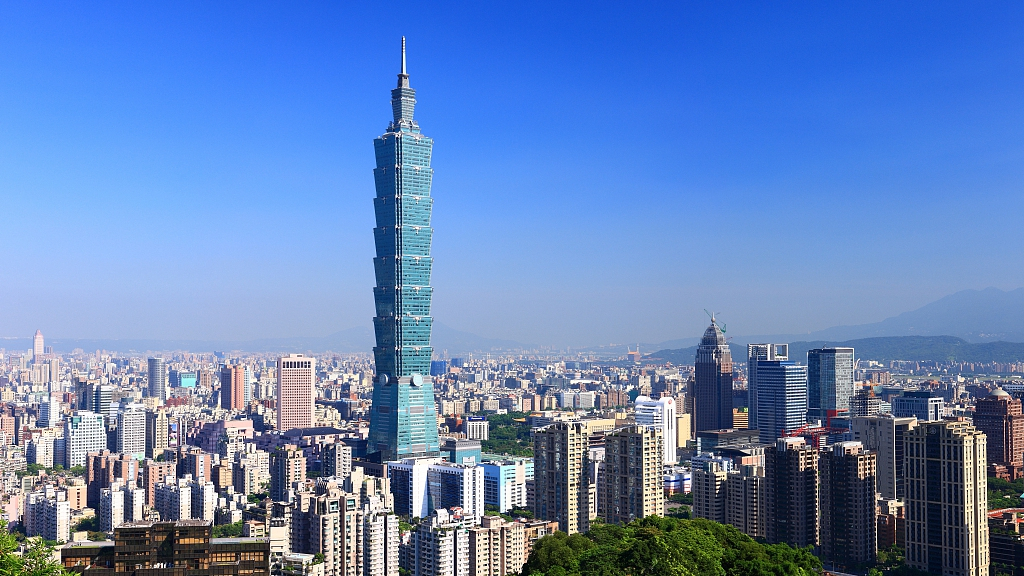Taiwan's missteps will only hasten reunification


On Tuesday, Taiwan’s “coast guard” reportedly “repelled” a mainland coast guard boat numbered 8029, potentially exacerbating tensions following the recent boat incident on Feb 14. If Taiwan continues to provoke the mainland, its authorities may face significant consequences.
The Spring Festival celebrations have been marred by the tragic incident in the waters off Kinmen island: in excuse of so-called prohibited or restricted waters, the violent law enforcement actions of the “Taiwan coast guard” caused a mainland fishing vessel to capsize, in which two of the four fishermen on board died, heightening tensions across the Taiwan Strait.
It is within the lawful rights of the Chinese mainland to carry out regular patrols and law enforcement operations in the waters between Xiamen and Kinmen to ensure the safety and livelihoods of fishermen and uphold order in the region. On Monday, the mainland's coast guard boarded a tourist ship from Kinmen, which was carrying 11 crew members and 23 passengers, to conduct a “routine check” that lasted approximately half an hour.
The measures are similar to the mainland’s patrols and law enforcement moves following former US House of Representatives speaker Nancy Pelosi’s reckless visit to Taiwan in August 2022, and they signify not only the mainland’s assertion of sovereignty in accordance with UN Resolution 2758, but also the gradual establishment of a new normal in governance and institutional progress toward cross-Strait reunification.
Taiwan has accused the mainland fishermen of “crossing the line”, while the mainland’s official response highlights the illegitimacy of Taiwan’s violent law enforcement. In reality, it is the “Taiwan coast guard” that crossed the line. Taiwan has failed to recognize the inherent illegality and excessive violence of its law enforcement process, which is not only a rejection of the mainland’s policy of “people on both sides of the Taiwan Strait are one family” and the integration of Fujian and Taiwan, but also a brutal attack on mainland fishermen.
Taiwan fails to acknowledge that its so-called regulations are not valid under Beijing’s legal framework, and the mainland had been tolerating its law enforcement actions in the past merely out of goodwill.
Taiwan should accept Beijing’s new normal law enforcement process in the waters between Xiamen and Kinmen and refrain from further encroaching on the lawful rights of mainland fishermen. In fact, Taiwan should change its law enforcement practices and review the aggressive nature of its “coast guard”.
More important, it is futile on the part of Taiwan to use external intervention to oppose Beijing’s new normal law enforcement measures. The Taiwan authorities and external forces trying to interfere in the country’s internal affairs must know that the new normal in cross-Strait relations presents a big challenge to the recently elected island leader Lai Ching-te and his administration. Cross-Strait relations are now in transition, with the US using Taiwan as a leverage to target Beijing.
However, the pro-independence agenda of Taiwan’s ruling Democratic Progressive Party — and its collusion with anti-Beijing external forces — have led to internal divisions in Taiwan.
Besides, Beijing cannot accept any new cross-Strait discourse which deviates from the 1992 Consensus that there is only one China and Taiwan is an integral part of China, and it will respond accordingly to any “Taiwan independence” rhetoric and action that undermine the one-China principle.
As a matter of fact, the Taiwan Affairs Office of the State Council’s categorical rejection of the island’s unilateral earmarking of the “prohibited or restricted waters” and condemnation of its violent law enforcement means Beijing has progressed a lot on the way to realizing national rejuvenation. The Taiwan Affairs Office’s move also affirms that the waters between Xiamen and Kinmen are the traditional fishing grounds of fishermen from both sides of the Strait whose legitimate rights are protected by mainland laws. As such, law enforcement by the mainland coast guard in the waters between Xiamen and Kinmen is the best institutional guarantee to prevent similar incidents.
Also, the new normal governance arrangement need not be subject to cross-Strait negotiations and instead should be implemented directly by the mainland based on the principle of sovereignty.
The DPP has refused to acknowledge the 1992 Consensus ever since outgoing island leader Tsai Ing-wen took office in 2016, seriously undermining cross-Strait relations. That has made it impossible to hold talks to resolve cross-Strait disputes. Making matters worse is the DPP’s hostile stance and “de-Sinicization” policy, which incidentally led to the tragic Kinmen incident.
The “further actions” can extend beyond the current law enforcement by the mainland’s coast guard and include criminal prosecution and sanctions against personnel, ensuring that those responsible for the Kinmen tragedy pay a heavy price.
The author is associate dean of the Law School at Minzu University of China, and a member at the Law Association for Relations across the Taiwan Straits.
The views don’t necessarily reflect those of China Daily.
































